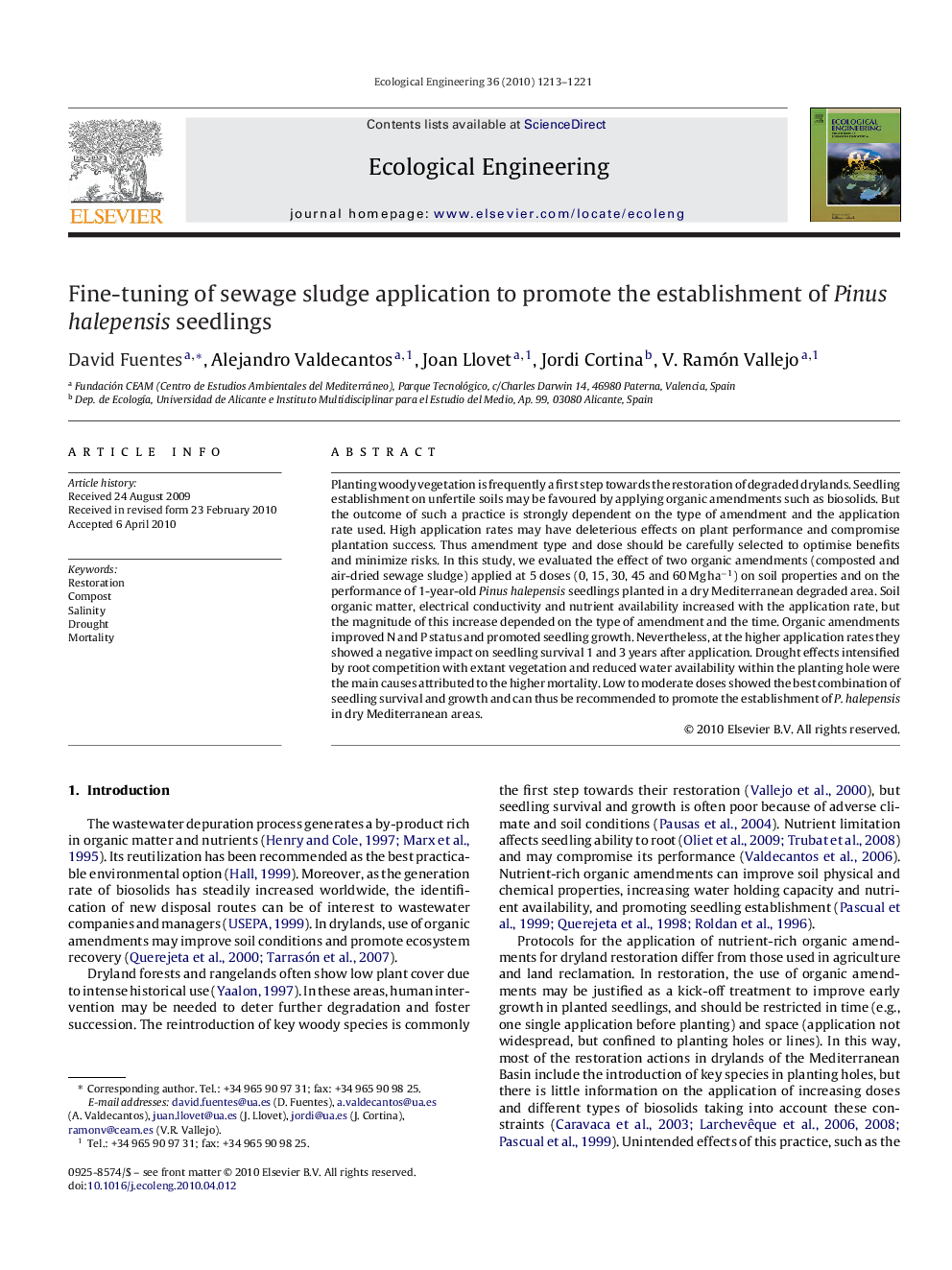| Article ID | Journal | Published Year | Pages | File Type |
|---|---|---|---|---|
| 4390567 | Ecological Engineering | 2010 | 9 Pages |
Planting woody vegetation is frequently a first step towards the restoration of degraded drylands. Seedling establishment on unfertile soils may be favoured by applying organic amendments such as biosolids. But the outcome of such a practice is strongly dependent on the type of amendment and the application rate used. High application rates may have deleterious effects on plant performance and compromise plantation success. Thus amendment type and dose should be carefully selected to optimise benefits and minimize risks. In this study, we evaluated the effect of two organic amendments (composted and air-dried sewage sludge) applied at 5 doses (0, 15, 30, 45 and 60 Mg ha−1) on soil properties and on the performance of 1-year-old Pinus halepensis seedlings planted in a dry Mediterranean degraded area. Soil organic matter, electrical conductivity and nutrient availability increased with the application rate, but the magnitude of this increase depended on the type of amendment and the time. Organic amendments improved N and P status and promoted seedling growth. Nevertheless, at the higher application rates they showed a negative impact on seedling survival 1 and 3 years after application. Drought effects intensified by root competition with extant vegetation and reduced water availability within the planting hole were the main causes attributed to the higher mortality. Low to moderate doses showed the best combination of seedling survival and growth and can thus be recommended to promote the establishment of P. halepensis in dry Mediterranean areas.
